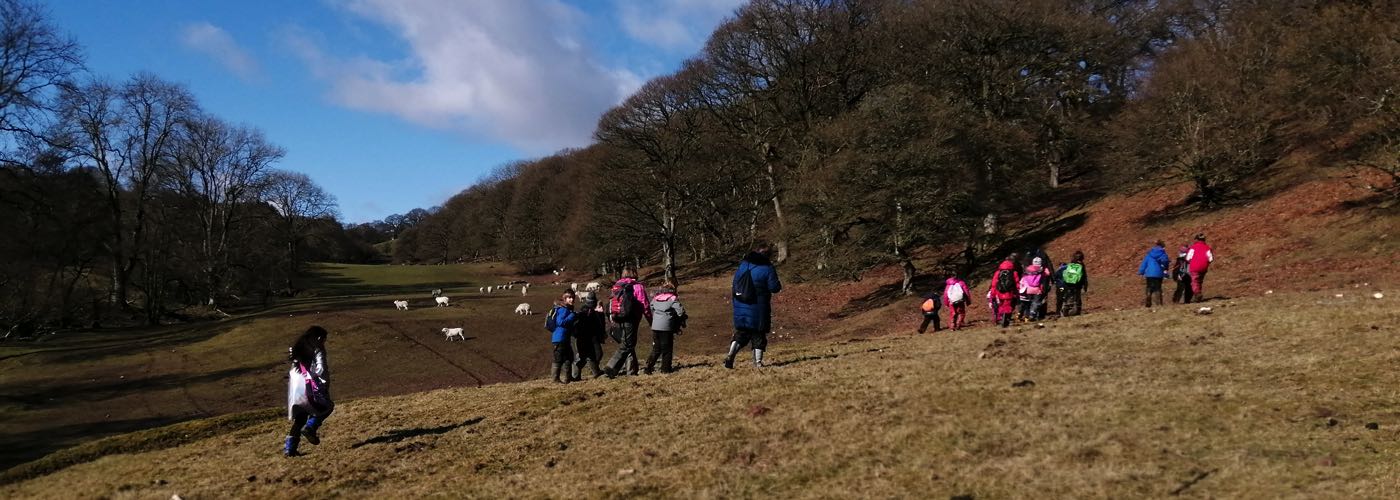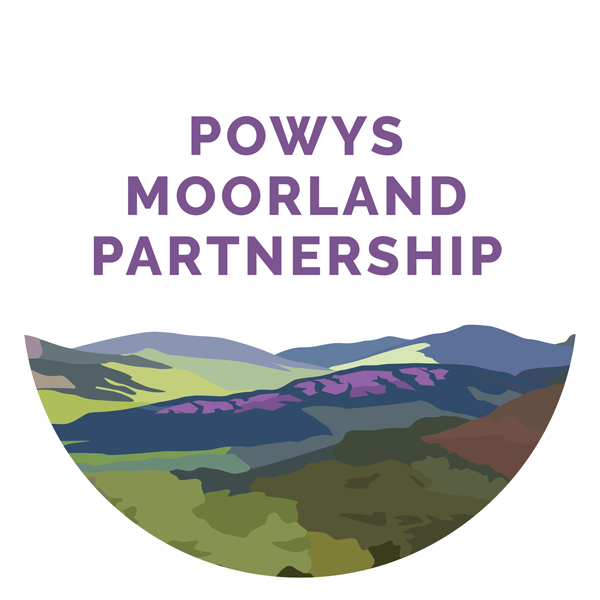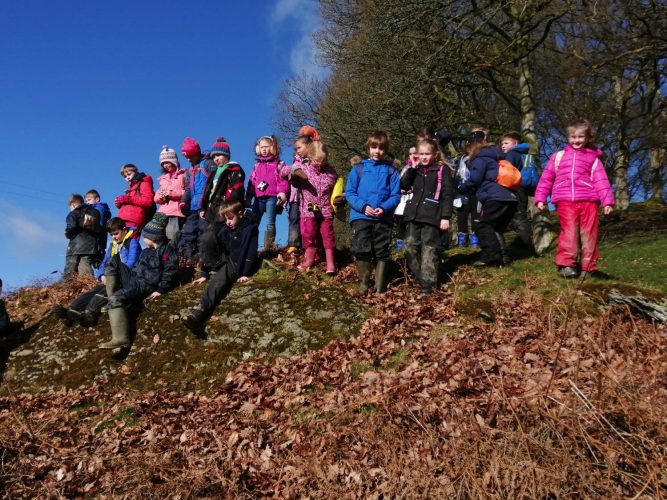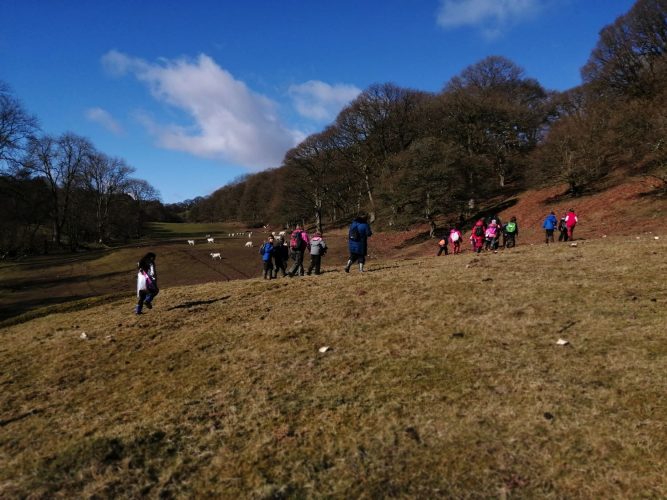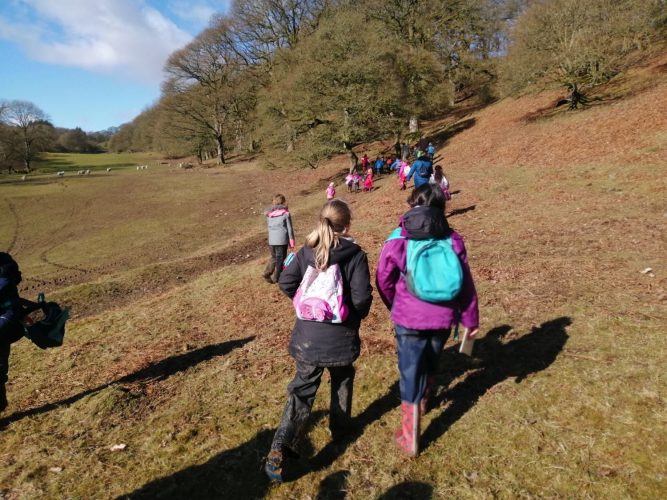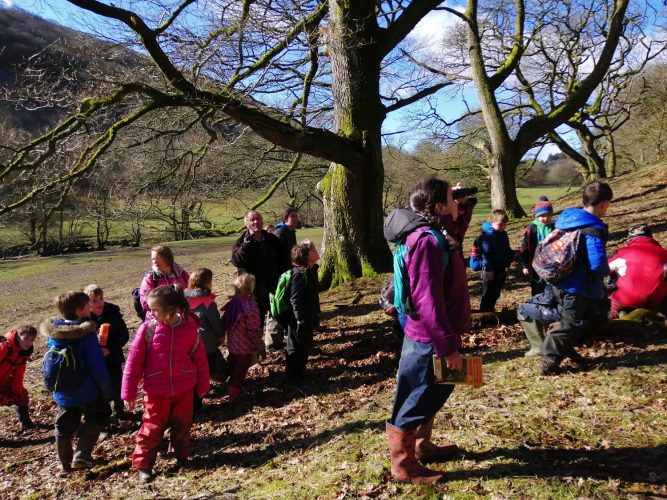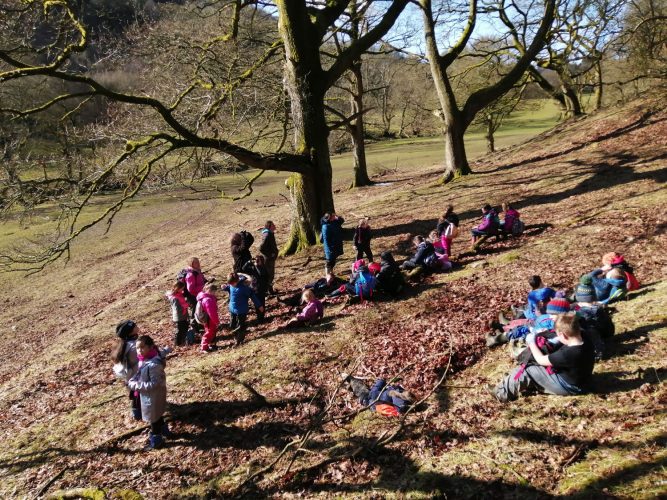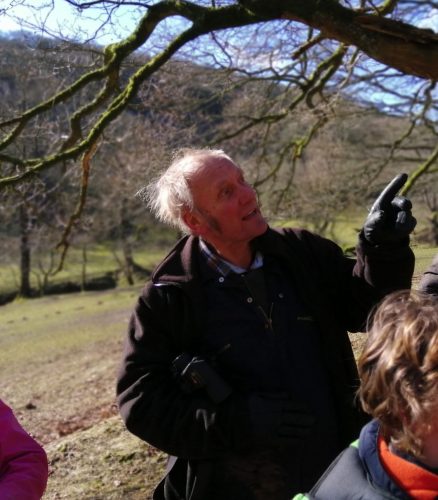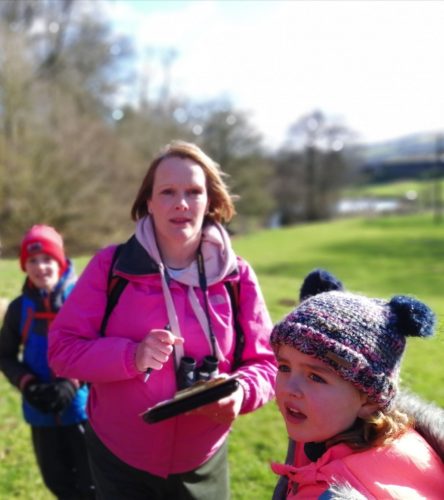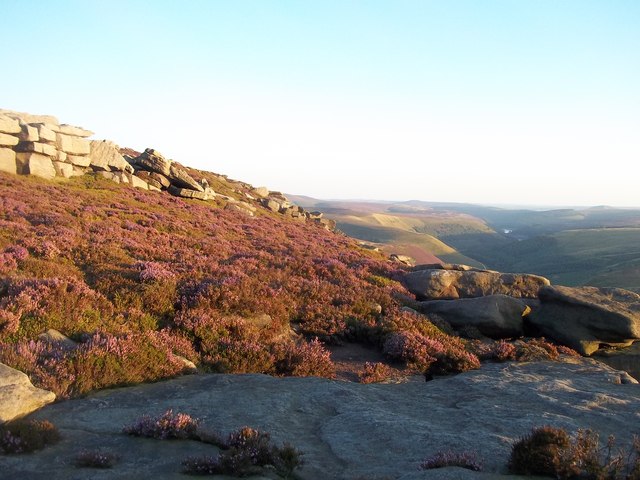It’s a very simple task but the excitement by Clyro school children who visited a farm last month (27th Feb) demonstrates the power of just getting outside & embracing nature by doing a bit of bird watching.
Part of the Big Farmland Bird Count #bfbc held on 100s of farms across the UK last month, the aim for the children was to see & record what birds are surviving the winter when all the seeds and berries have gone.
Twenty seven children from across key stage two at Clyro Primary School were fully equipped with waterproofs, wellies and bird books to see what birds they could hear and see with the help of Nick Myhill from the Powys Moorland Partnership project which sponsored the event.
The citizen science programme aims to get more people involved in seeing what birds are responding to what measures on farms that can help birds survive the ‘hungry gap’ months.
Kate and Gwyn Lewis at Llanbedr Hall near Painscastle kindly hosted the event and welcomed the children. They run a mixed farm where there are a number of connecting habitats, from hedges and trees, streams, ponds and woodlands where many bird species were noted.
Nick Myhill drew attention to the different sounds of birds particularly the Song Thrush which has many different melodies which makes them tricky to pinpoint.
Along with Red Kites and Buzzards that moved along the farm with the children they identified Blue Tits, Great Tits, Long Tailed Tits, Blackbirds, Bullfinch, Carrion Crow, Chaffinches, a Great spotted woodpecker, House Sparrow, a Magpie, Mistle Thrush, Mallards, Ravens, Robins, Song Thrush, a Sparrowhawk, Starling, Stock Dove, Woodpigeon and a Wren.
“We have got to engage more with the public so that they can see for themselves what our countryside has to offer,” says Kate, who believes that we have got to get the positive messages out on how wildlife and farming are so important to each other and how it all interconnects. “There’s nothing that beats seeing it for yourself,” she says.
Mrs Phillips is the teacher at Clyro school who has instrumented these farmer and moorland events over the PMP project period. “We always jump at the chance to get outside and meet the farmers and hear it from them as to what is happening in our amazing landscapes. It also gets the children involved in nature which we take back to the classroom for future research. It really gives them something positive to think about and challenges them regarding where our food comes from and its crucial link with wildlife.
“It’s always a great day for us to be outside and despite the weather the children are so motivated by something so simple as bird counting.”
Catherine Hughes, the PMP project facilitator comments: “These children have been out a number of times to look at different aspects of the landscapes. From curlew watching last spring, to walking the length of the moorland at Llanbedr hill to take part in the tales of the Mabinogion, we are creating a picture of the importance of our landscapes which is so valuable.”
Making the connections of where we live is what the PMP has been demonstrating over its 3 years. We believe that school visits really do address the Five Ways to Wellbeing, which are
- Connect – with the people around you, with family, friends, colleagues and neighbours, at home, work, school or in your local community. …
- Be active – exercising makes you feel good. …
- Take notice – be curious. …
- Keep learning – try something new. …
- Give – do something nice for a friend, or a stranger.
Geoff Eyre – Moorland regeneration pioneer
The Fieldsports magazine website recently ran a great insight into the work of a true moorland pioneer: Geoff Eyre.
Since taking on the sporting lease for Howden Moor in Derbyshire’s Peak District in the 1990s, Geoff has achieved spectacular results as he set about regenerating its habitat by applying careful management practice and innovative agronomist principles.
“An ESA (Environmentally Sensitive Areas) programme outlined the importance of heather cover in supporting a diverse number of species. Whilst some attempt was made to reverse heather loss, I asked if I could try a different approach.”
Geoff pioneered an ingenious use of smoke along with careful seed improvement, controlled burning, cutting and spraying. Consequently, thousands of acres of moorland have recovered, and his methods are now followed on moors across the north of England and Scotland.
This in turn has resulted in increased employment opportunities for keepers to look after the increasing acreages of productive heather areas.
There is a thriving birdlife at Howden, including a third of the Peak District’s ring ouzels. Big numbers of golden plover, curlew, lapwings and an increasing number of black game. In fact all typical moorland birds. And Geoff has given talks to birdwatching clubs. There is an increasing number of peregrines and merlins, and a high density of goshawks, and relative newcomers buzzards and ravens! “I had never seen a raven until 10 years ago – now we seem to have lots of them.”
And furthermore, thousands of walkers now have better-than-ever views of swathes of purple heather!
Scientific appraisal
You can read a detailed scientific appraisal of the management of Howden Moor, including a downloadable PDF, on the Science Direct website.
Keep in touch, get involved.
We will be putting on various events over the next 12 months. If you would like to get involved, have some ideas please contact Catherine on urmyc.sdnalroomsywop@tcatnoc
